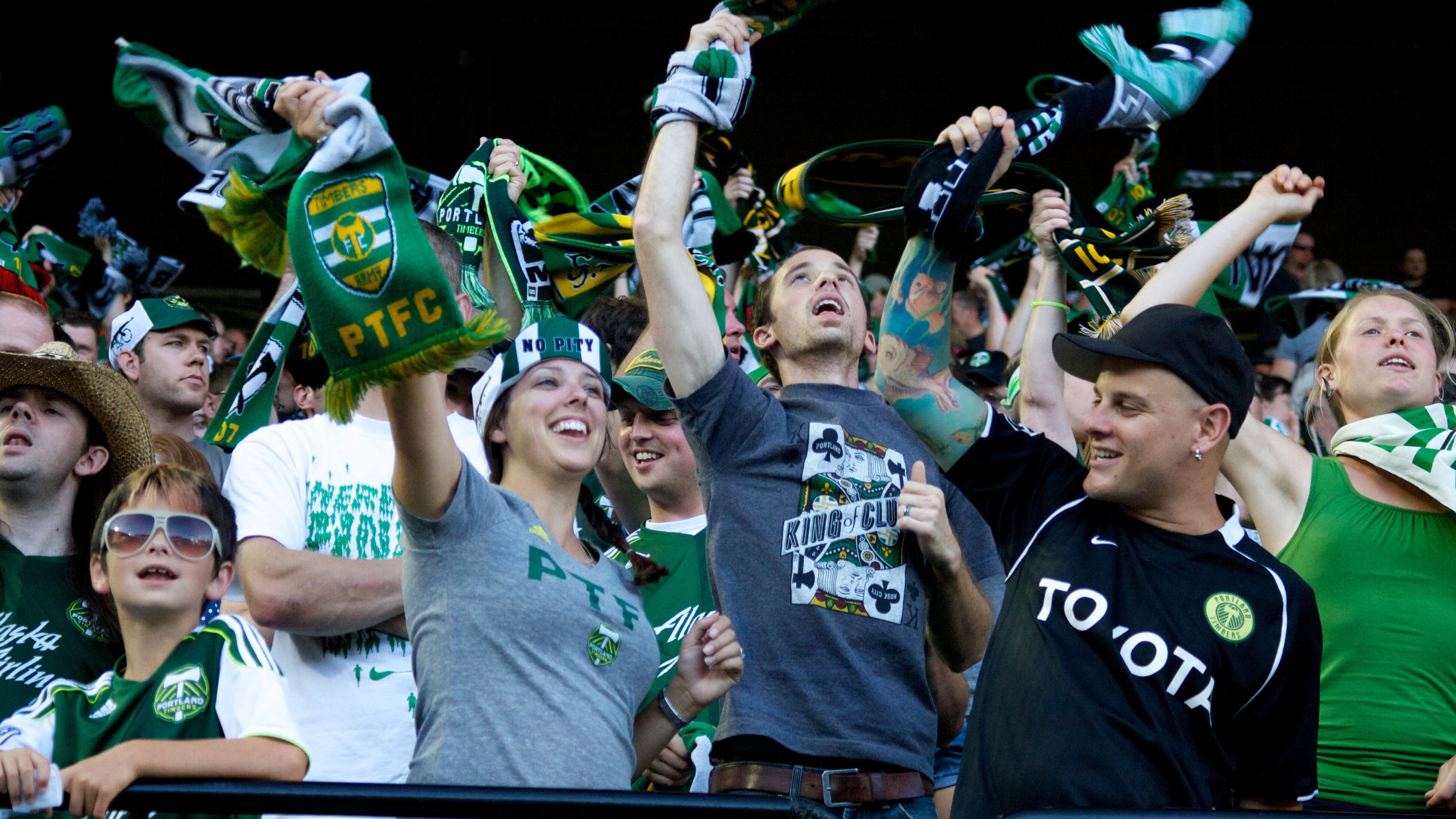For the last two months, soccer fans in Portland have watched as the Timbers Army pushed back on a Major League Soccer ban on flags bearing an antifascist symbol with successive protests.
The normally raucous fan base remained silent for part of a game against sworn rivals Seattle Sounders during an Aug. 23 game and flew pointed banners about solidarity at the next Sept. 6 game. Multiple Timbers Army members, including Cider Riot owner Abram Goldman-Armstrong, were issued three-game bans by MLS for flying Iron Front flags in defiance.
On Sept. 24 the protests paid off. MLS rescinded its ban on the flags and banners bearing the Iron Front symbol—a circle encompassing three arrows.
That win was due to the Timbers Army's large influence in the league and grassroots organizing by its board of directors, according to a recent article by Ringer reporter Michael Weinreb.
Weinreb wrote that the Timbers Army, which "constructed itself around the very idea of Portland's embrace of its own unconventionality," not only helped bring MLS to Portland but it "exemplifies the paradigm MLS hopes to foster."
When MLS instituted a ban on the Iron Front symbol, it pissed off the anti-establishment fan base. "To many members of the Army, this felt like a cautious attempt to restrict the very spirit they'd built themselves upon," Weinreb wrote. But, he observed, the Timbers Army was unique in being able to challenge MLS because of its large influence on the sport's image.
"The very reason the Army has gathered such power is because it doesn't fit the prescribed model of American sports," Weinreb wrote. "Their power is in their independence, and if they cede that, then where does that leave them? And what does it leave a city like Portland to cling to as it confronts its own palpable angst about getting too big, too fast?"
The full article, in which Weinreb also examines the history of the Timbers Army and its connections to the city's antifascist movements, is worth reading in its entirety here.

